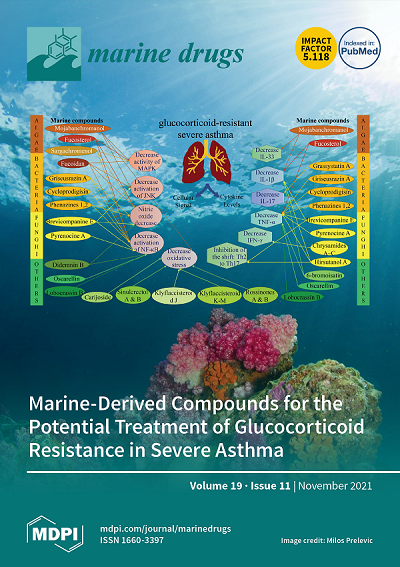ASIC3通道多肽抑制剂的突变引入了与ASIC1a拇指结构域的结合,但降低了镇痛活性
IF 4.9
2区 医学
Q1 CHEMISTRY, MEDICINAL
引用次数: 0
摘要
作为质子门控钠通道的酸感应离子通道(ASIC)作为药理学靶点备受关注。ASIC1a 异构体主要存在于中枢神经系统,在突触可塑性、焦虑、神经变性等方面发挥着重要作用。在外周神经系统中,ASIC1a 与 ASIC3 同样重要,后者因参与疼痛信号传导、机械敏感性和炎症性痛觉减退而广为人知。然而,ASIC1a 在外周功能中的确切贡献还需要深入研究。要研究 ASIC 的具体作用,能够调节这些通道的多肽配体是不可或缺的工具。通过分子建模,我们从海葵多肽 Ugr9-1 中设计出了靶向 ASIC1a 通道的多肽,该多肽原本靶向 ASIC3。这种多肽(A23K)保留了对 ASIC3 的抑制作用(IC50 9.39 µM),并在电生理实验中表现出对 ASIC1a 的额外抑制作用(IC50 6.72 µM)。分子建模预测 A23K 肽的 Lys23 残基与 ASIC1a 通道拇指结构域中的 Asp355 残基之间存在关键的相互作用,该作用已被通道的定点突变所证实。然而,与野生型 Ugr9-1 相比,A23K 肽的镇痛特性显著降低或丧失。总之,我们利用 A23K 表明,对外周神经系统中的 ASIC1a 通道进行负调控会损害镇痛药物的疗效。这些结果有力地说明了在开发针对 ASIC 的外周疼痛治疗方法时所需要的复杂平衡。本文章由计算机程序翻译,如有差异,请以英文原文为准。
Mutagenesis of the Peptide Inhibitor of ASIC3 Channel Introduces Binding to Thumb Domain of ASIC1a but Reduces Analgesic Activity
Acid-sensing ion channels (ASICs), which act as proton-gating sodium channels, have garnered attention as pharmacological targets. ASIC1a isoform, notably prevalent in the central nervous system, plays an important role in synaptic plasticity, anxiety, neurodegeneration, etc. In the peripheral nervous system, ASIC1a shares prominence with ASIC3, the latter well established for its involvement in pain signaling, mechanical sensitivity, and inflammatory hyperalgesia. However, the precise contributions of ASIC1a in peripheral functions necessitate thorough investigation. To dissect the specific roles of ASICs, peptide ligands capable of modulating these channels serve as indispensable tools. Employing molecular modeling, we designed the peptide targeting ASIC1a channel from the sea anemone peptide Ugr9-1, originally targeting ASIC3. This peptide (A23K) retained an inhibitory effect on ASIC3 (IC50 9.39 µM) and exhibited an additional inhibitory effect on ASIC1a (IC50 6.72 µM) in electrophysiological experiments. A crucial interaction between the Lys23 residue of the A23K peptide and the Asp355 residue in the thumb domain of the ASIC1a channel predicted by molecular modeling was confirmed by site-directed mutagenesis of the channel. However, A23K peptide revealed a significant decrease in or loss of analgesic properties when compared to the wild-type Ugr9-1. In summary, using A23K, we show that negative modulation of the ASIC1a channel in the peripheral nervous system can compromise the efficacy of an analgesic drug. These results provide a compelling illustration of the complex balance required when developing peripheral pain treatments targeting ASICs.
求助全文
通过发布文献求助,成功后即可免费获取论文全文。
去求助
来源期刊

Marine Drugs
医学-医药化学
CiteScore
9.60
自引率
14.80%
发文量
671
审稿时长
1 months
期刊介绍:
Marine Drugs (ISSN 1660-3397) publishes reviews, regular research papers and short notes on the research, development and production of drugs from the sea. Our aim is to encourage scientists to publish their experimental and theoretical research in as much detail as possible, particularly synthetic procedures and characterization information for bioactive compounds. There is no restriction on the length of the experimental section.
 求助内容:
求助内容: 应助结果提醒方式:
应助结果提醒方式:


